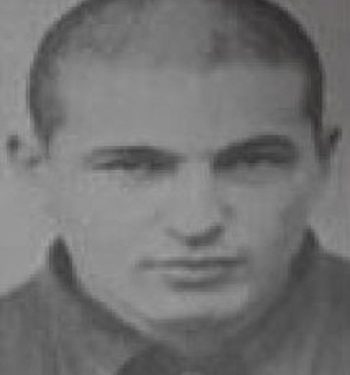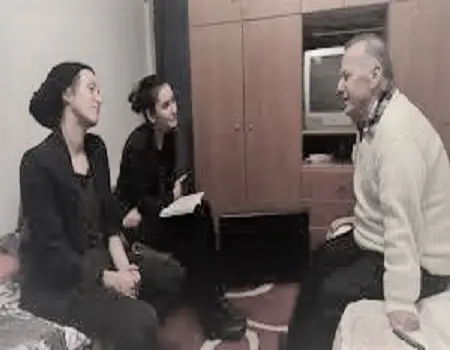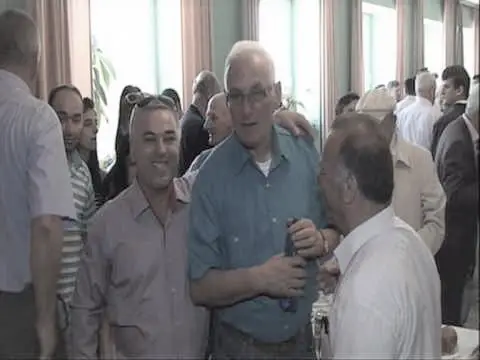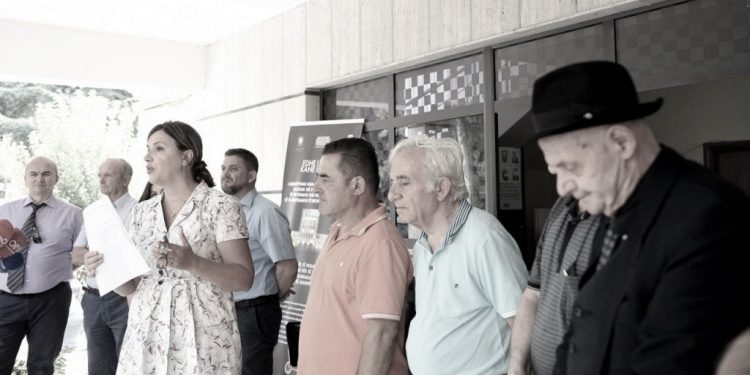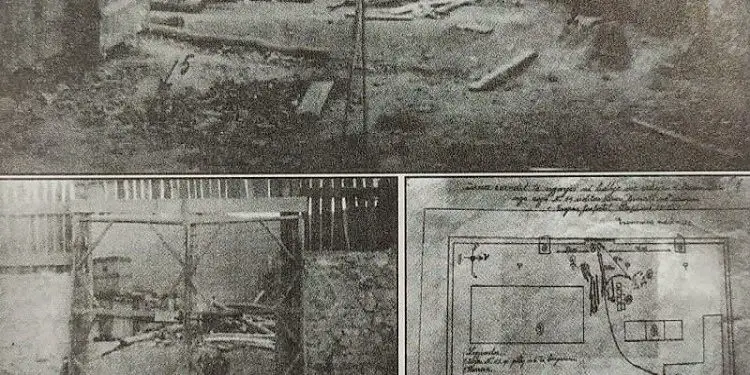From Briken Metaj
Memorie.al / He were only 19 years old, when he ended up in the dungeons of Enver Hoxha’s communist dictatorship. For 12 years, he experienced hell in Spaçi Prison, facing suffering, torture, hunger, lies and deception. He cried silently when his friends were killed in front of his eyes. And after many years, at the time when the brutal dictatorial system was overthrown, he returned again to the prison cells, wearing the policeman’s uniform that he hated so much. For almost another 20 years (until 2013), he worked as a guard in Benca Prison. It is about the 70-year-old Neim Pashaj, from Tepelena, who says that he was convicted in 1966, just for a word of mouth, with the charge: “Agitation and propaganda and attempted escape”. In this interview, Pashaj, tells the horrors he experienced in Spaçi Prison. He says that the murder of his friend, Naum Kondakçi, in Laçi Camp, where the prisoners were building the Superphosphate Plant, has left an indelible mark on his memory. Meanwhile, it shows in detail how the revolt started in Spaçi prison and how he raised the flag with the eagle drawn by a prisoner, but without the red five-pointed communist star. Also, the former political prisoner, Neim Pashaj, declares that, for many years, he hated the policemen, while he managed to understand the role of the Police, and now he really feels like a policeman.
Mr. Pashaj, when did you go to prison for the first time and what was the reason?
I was only 19 years old when I went to prison for the first time, on June 4, 1966. The reason for the imprisonment was a conversation with my uncles, to escape to Greece.
And while I was really spiritually prepared for this step, one of my uncles took only one brother and escaped. It seemed to me like a breach of faith. In the trial it was said that the group that was going to escape was in pursuit.
What was it like for you to be in prison at such a young age?
I had heard about the prison before also from my uncle. Even my father often advised me to be careful, especially if I was with my uncle, who had once escaped, because he was always in pursuit. For a word of mouth, I was sentenced to 12 years in prison. I didn’t know my uncle was gone.
At that time, he was working in Delvina, while I was in Memaliaj, in the mine. They arrested me saying that I knew about his escape.
They tortured me a lot, and for a young man at that age, which is the age of beautiful dreams, it was very severe. In prison I found people with a big world, who had completed their studies abroad.
For me, they were the first teachers who introduced me to the world of politics, which until then was unknown to me. I learned a lot from them. I learned the great truth of what that system was and what was said about it. In prison I knew suffering, deception, lies, hunger.
Has there been an event that has left a mark on your life?
I have seen real horrors. It is said that suicide is punishable, but this act also requires a very great force. There were many such cases, and all of them were painful. Especially when it came to my friends, for whom I cried. One of these was Naum Kondakçi, who, in an attempt to escape, was killed.
They had brought it at night and thrown it right where they shared the food, in front of the feast. It was a place almost 10 m long with cement where the drums were taken out. I had a friend. He was young, not even 30 years old. In the morning, when I heard that Naum was killed, I hurried there.
He always wore a towel around his neck. It was a rainy day on December 6, 1961. He had been wounded in the leg and he had tied it with a towel. Then the shells had hit him in the stomach, while his intestines had come out. I was terrified, but I approached.
I untied the towel from his leg, put his intestines inside and threw the towel over him. The prisoners surrounded me, while the policemen beat me for what I did. This is a very heavy event for my memory. Over the years, such events began to seem “normal” to me.
You were part of the Spaci revolt. What was its cause?
In 1973, hatred and constant torture made anger grow, so the revolt broke out. The first cause was a Kosovar who lived in Shijak, Pal Zefi, who was convicted together with his brother.
I was present around the 20th of February, when we were taken out into the yard and he had a red wool scarf with white stripes around his neck. The guard turned him around and asked him to take it off, as civilian clothes were not allowed.
He objected and they put him in the dungeon for a month. But when the exit time was met, they weren’t taking it out. Paul used the moment when the policemen were changing and came to the camp.
He was sentenced for another two months, until May 20. When he got out of the dungeon, he grabbed a crowbar while surrounded by cops. This was the moment when the revolt broke out.
What was your role in this revolt?
The revolt was of great magnitude. I have fully participated. The exact number is not known, but those who did not participate were very few.
Most took concrete action. I was part of the flag raising group. It was I who gave the idea to give a strong political character to this revolt.
Where did you find the flag?
It was just coincidence. I had seen in the window of the second floor that one of the prisoners had covered the window with a red meringue, but when I went there I noticed that it had white dots on it.
As luck would have it, one of the inmates of the room had a matching red meringue. With Shuaip Ibrahimi, we raised him with a restela without an eagle. But the prisoners did not leave us.
“We are not at war, – they told us, – we need the eagle.” In room no. 11, Mersin Vlashi was a painter; someone found paint can and we put the starless eagle flag on the corner of the terrace. We were very excited the moment we raised the flag.
I will never forget those difficult years in prison. But life is strange. I did not think that I would be back after many years in prison, although it was quite different.
Were you imprisoned again?
No no. After the overthrow of the dictatorship system, I agreed to work as a prison guard.
What is it like to be a prison guard after being imprisoned for so many years?
I hated the police of that time, and this is natural to the mindset I had at the time. I thought the police were only prepared to torture people. In 1991, the Association of Former Political Prisoners was established, where I was elected its secretary.
The head of the Interior Department at that time asked me to work as a policeman. I explained that I couldn’t stand the scraping of iron, that noise I had heard for years.
Then why did you agree to work as a prison guard?
After some time, I fell into financial difficulties. I had started a family and was left with no choice. The mine was closed. One day I saw my daughter sitting alone near the school and I asked her where her friends were.
She told me that her friends had gone to a store, while she had no reason to go, that she had no money. I was very sad, so I decided to accept the former proposal. I worked as a guard for nearly 20 years, until 2013.
How was the first day of work as a prison guard?
The most difficult moment was when I put on the uniform, that uniform that I had hated for so many years, while now I was forced to wear it…!
How was your relationship with the prisoners?
I never shot the prisoners, because I remembered myself, but I managed to convince myself of the important role of the Police, and today I feel – in the full sense of the word – a policeman. Memorie.al




